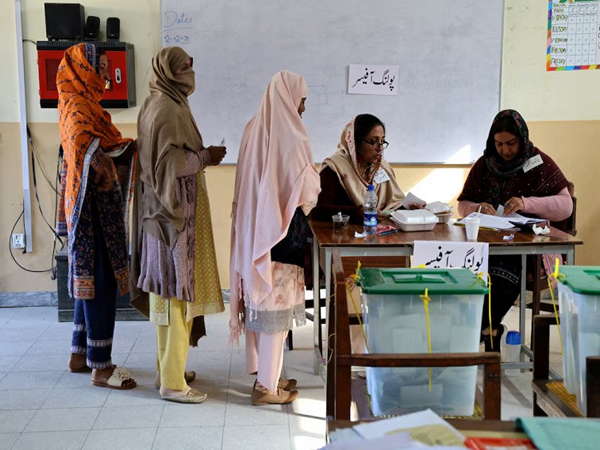Pakistan's election body delays bypolls due to floods
The Election Commission of Pakistan has postponed by-elections in nine constituencies, citing floods that damaged infrastructure, displaced voters, and tied up civil administration in relief operations. According to Dawn, the decision affects both National and Punjab Assembly seats, with a new schedule to be issued once conditions normalise.

- Country:
- Pakistan
The Election Commission of Pakistan (ECP) has postponed all scheduled by-elections across the country in light of the widespread flooding, Dawn reported. According to the Commission, polling was due in five National Assembly constituencies and four Punjab Assembly constituencies, but has now been put off until conditions improve. A revised schedule will be announced once the flood situation stabilises.
The by-elections had been scheduled after the disqualification and sentencing of several Pakistan Tehreek-e-Insaf (PTI) lawmakers by anti-terrorism courts in connection with the May 9 cases. The affected National Assembly seats included NA-66 (Wazirabad), NA-96 and NA-104 (Faisalabad), NA-129 (Lahore) and NA-143 (Sahiwal). Polls were also due in Punjab Assembly constituencies PP-73 (Sargodha), PP-87 (Mianwali), PP-97 (Faisalabad), and PP-203 (Sahiwal), Dawn reported. Explaining its decision, the Commission said public and private infrastructure, including schools and government buildings designated for polling stations and election record storage, had been damaged by the floods. "Civil administration and law enforcement agencies are engaged in rescue and relief operations, making it difficult for them to perform election-related duties," the ECP noted.
The Punjab government had also requested a postponement so that staff and facilities could be used for relief efforts, Dawn reported. The ECP further highlighted that large segments of the population in affected constituencies had been displaced, leaving many voters unable to participate and risking disenfranchisement and low turnout. "Taking all these factors into account, the Commission decided to postpone the by-polls until conditions improve," it said. As authorities grapple with the floods, international partners have stepped in with assistance. The United Kingdom announced an additional £1.2 million on Thursday to support Pakistan's coordinated response and help communities in Sindh prepare for fresh flooding.
According to the British High Commission, this brings the UK's total humanitarian support to £2.53 million, expected to reach more than 400,000 people. The funds will be channelled through NGOs to strengthen early warning systems, enable evacuations, pre-position essential supplies and protect livestock. "Sindh is in a critical window to prepare and reduce the impact of the upcoming floods," British High Commissioner Jane Marriott said, Dawn reported.
This latest package follows GBP 1.33 million announced on August 22 for relief operations in Khyber-Pakhtunkhwa, Punjab and Gilgit-Baltistan, including food rations, medical camps and restoration of irrigation channels. The UK has also contributed GBP 500,000 to Pakistan's Start Ready Disaster Risk Financing system, aiding 20,000 people across Punjab, Sindh and KP. The United Nations is also working closely with Pakistani authorities. Emergency Relief Coordinator Tom Fletcher has released USD 600,000 from the Regional Humanitarian Pooled Fund to support recovery, while Secretary-General Antonio Guterres expressed solidarity with Pakistan, commending the relocation of more than one million people in Punjab, Dawn reported.
At the same time, domestic health concerns are rising. The Federal Ministry of Health has issued advisories to prevent outbreaks of cholera, typhoid, dengue, chikungunya and malaria due to contaminated water. Citizens have been urged to follow protocols listed on ministry and National Institutes of Health websites. Meanwhile, the UN's Food and Agriculture Organisation (FAO) said in its "Desert Locust Bulletin" that Pakistan faces no immediate locust threat. Surveys in August detected no locusts in key summer breeding areas, with only very small-scale breeding possible. "No significant developments are expected," the FAO noted, as quoted by Dawn. (ANI)
(This story has not been edited by Devdiscourse staff and is auto-generated from a syndicated feed.)
ALSO READ
Pakistan Calls for Full Adherence to Indus Water Treaty Amidst Diplomatic Tensions
India Shares Humanitarian Flood Data with Pakistan Amid Tensions
China-Pakistan Unveil CPEC 2.0 with $8.5 Billion in Agreements
Border dispute with China biggest security challenge followed by Pakistan's proxy war: CDS Gen Chauhan
REFILE-Quakes deal fresh blow to poor Afghans deported from Pakistan










